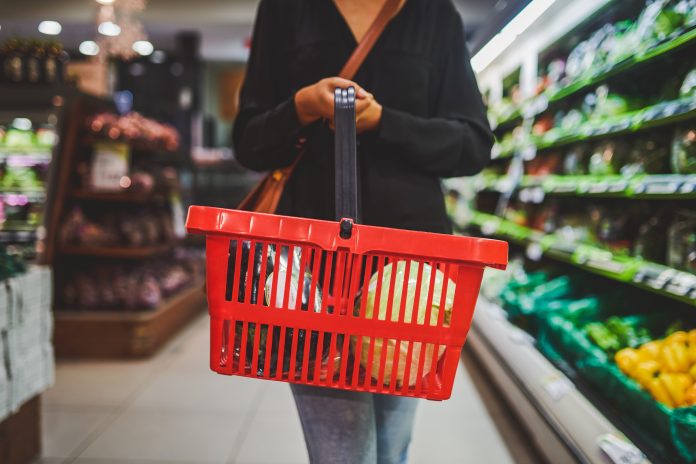Grocery prices in Great Britain have increased for the first time in 17 months, posing renewed challenges for shoppers already struggling with the cost of living
Supermarket prices were 1.8% higher in the four weeks leading up to 4 August compared to last year, a slight increase from July’s 1.6%, the Guardian reported. This reversal ends a gradual easing of inflation in March last year, marking a return to pre-crisis levels.
Increase in grocery prices
The uprise in prices has been put down to various factors, including rising costs for vitamins, minerals, supplements, and certain food items like fruit juices and chocolate confectionery.
Prices for essentials such as toilet paper, bottled colas, and dog food saw declines. This mixed picture on supermarket shelves reflects broader economic pressures and changing consumer behaviours in response to fluctuating prices.
Consumers have now turned to supermarket promotions to manage their budgets effectively. The was a 15% increase in spending on deals, highlighting a strategic response by shoppers to keep costs down. Interestingly, sales of discounted products surged, while sales at regular prices remained relatively stable.
The summer season also influenced consumer spending patterns, with warmer weather driving up sales of seasonal favourites. Ice cream and burgers saw significant increases of 23% and 32%, respectively, compared to last year. Additionally, sales of chilled prepared salads rose by 22%, reflecting preferences for refreshing and convenient meal options during hot weather.
Summer weather increasing grocery prices and sales
Beyond food, the summer of sport provided another economic boost as consumers celebrated various events. Sales of wine spiked by 35%, nuts by 60%, and crisps by 10% around the time of the Olympics opening ceremony. Similarly, football fans contributed to a £10 million surge in beer sales during the Euro 2024 football final, showing the economic impact of major sporting events on consumer behavior.
In terms of market performance, Sainsbury’s emerged as the fastest-growing traditional supermarket, achieving a sales increase of 5.2% and its largest market share gain since July 1997. Online retailer Ocado continued its strong growth trend with an 11.3% rise in sales over the period, maintaining its position as the fastest-growing grocer overall. Meanwhile, Tesco sustained its market share growth, reaching 27.6% and increasing sales by 4.9%.
ASDA faced challenges with a 5.3% decline in sales at established stores for the three months ending in June. The supermarket’s market share also contracted to 12.6% from 13.7% a year earlier, prompting calls for strategic adjustments from leadership.











